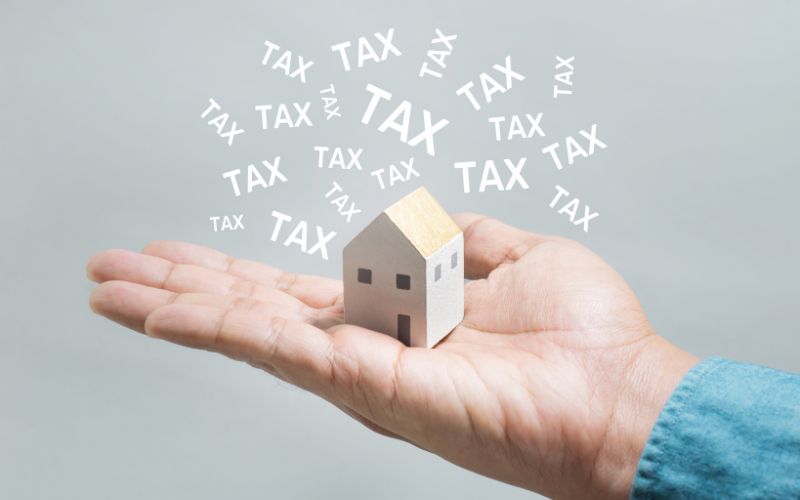One of the complexities you will need to face when selling your property is dealing with taxes, particularly Capital Gains Tax (CGT).
While CGT is a mandatory tax, there are strategies that can help you lower the amount you owe to the Australian Taxation Office (ATO). You can also avoid them, provided you meet certain requirements and conditions.
What is capital gains tax?
CGT is a tax imposed on the profit or gain made from the sale or disposal of an asset that has increased in value since its acquisition.
Introduced in Australia in 1985, the tax is typically applied to various types of assets, including real estate, stocks, bonds, and other investments, as well as personal-use assets like collectibles and certain personal property.
Your Mortgage’s Capital Gains Tax Calculator can help give you an estimate of the CGT you may have to pay when you sell your property.
Are there exemptions to capital gains tax?
There are situations in which you may not be required to pay CGT:
-
Capital Loss: If you experience a capital loss by selling your property for less than its original purchase price, you are exempt from CGT because there was no capital gain.
-
Principal Place of Residence (PPOR): If your property meets the following criteria, it is considered your PPOR and you will not be required to pay capital gains tax when you sell it:
-
-
You and your family live in it.
-
Personal belongings are located within the property.
-
It serves as your mailing address.
-
It is the address registered on the electoral roll.
-
Essential services like gas, phone, and power are connected to it.
-
-
Transition from PPOR to Rental Property: When you convert your main residence into a rental property, you are still exempt from CGT if you sell the property within six years of it being rented out. This exemption applies if you did not own another main residence during the rental period. The six-year rule resets when you return to the property as your main residence.
-
Mixed-Use Property: If your primary residence also functions as your principal place of business, you may be subject to CGT only for the portion of the property used for income generation.
-
If the property is acquired before 20 September 1985: If your property was acquired before CGT was implemented, you will gain exemption from paying it when you sell your property. Since the property is exempt from the rule, however, you will also not be able to reduce your assessable income when you make any losses from selling it.
5 strategies to lower the amount of capital gains tax
While CGT is a mandatory tax, there are legal strategies that can help reduce the amount you owe. Here are some examples:
-
Hold the property for at least 12 months: When you sell your property within 12 months of acquiring it, you will incur CGT at a full rate. However, you can get a discount when you decide to sell your property after 12 months of ownership. There are two ways you can do this:
-
- Discount Method – You can benefit from a 50% discount as long as you meet the 12 months of ownership rule.
- Indexation Method – If you acquired a property before 21 September 1999, you can use this method, which allows you to adjust the amount based on the Consumer Price Index.
-
Consider selling when your income is lower: You can potentially get tax savings when you delay the sale of your property to the year when your income is expected to be lower. This way, you can take advantage of a lower marginal tax rate and reduce your CGT.
-
Take advantage of your SMSF: Selling a property held in your SMSF has its tax benefits. When you sell during the accumulation phase and you held the property for more than 12 months, only two-thirds of the capital gain is taxed at a full rate, while the remaining will bear a discounted tax rate. For properties sold in the pension phase, no CGT will be charged.
-
Increase your cost base: Another way to reduce the amount of CGT is by increasing your cost base — this can be done by making sure you keep a record of all property-related expenses such as stamp duty, legal fees, title fees, and capital costs of renovations.
-
Invest in affordable rental housing: An additional 10% discount is available if you are selling your property that you used to provide affordable rental housing for a minimum of 3 years. Your property must have been managed by a registered Community Housing Provider and must be rented at below-market rates.
Reach out to a tax expert
Understanding the tax rules and seeking professional advice can help you legally reduce your CGT liability and potentially maximise your profits.
Remember that tax laws are subject to change, so it is crucial to stay updated on the latest regulations and consult with experts to make informed financial decisions when selling your property.
Buying an investment property or looking to refinance?
The table below features home loans with some of the lowest interest rates on the market for investors.
Lender Home Loan Interest Rate Comparison Rate* Monthly Repayment Repayment type Rate Type Offset Redraw Ongoing Fees Upfront Fees Max LVR Lump Sum Repayment Extra Repayments Split Loan Option Tags Features Link Compare Promoted Product Disclosure
Promoted
Disclosure
Disclosure
-
Photo by HAKINMHAN on Canva.
Collections: Capital Gains Tax Property Investment






Share